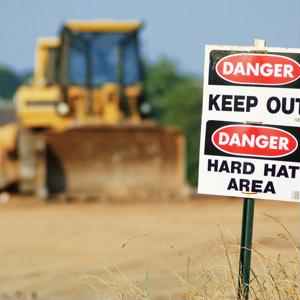
5 things you should know about OSHA
June 19, 2018 3:11 pm Leave your thoughts
No matter what type of business you own, "safety first" is a great motto to live by. If nothing else, it's an indication that one of your top priorities is the health and well-being of the people who work for you.
"An average of 4.5 million people in the U.S. get injured at work annually."
Mottos are meaningless without a plan of action, however, and even then, injuries can still occur. Indeed, according to the National Safety Council, someone is hurt while on the job once every seven seconds. This rate translates into approximately 510 injuries per hour, 12,300 per day, 86,500 per week and a whopping 4.5 million injuries per year.
Safety is a shared responsibility, and the federal government has an entity to ensure businesses implement the appropriate compliance measures so injuries are less likely to occur.
If you're new to the business world – or perhaps could use a refresher course – here are some of the things you should know about the Occupational Safety and Health Administration and how it may affect your operation:
1. OSHA operates under the Labor Department's purview
In 1970, the U.S. Congress and then President Richard Nixon signed the Occupational Safety and Health Act into law, which formed OSHA. Overseen by the Department of Labor, OSHA's charge is making sure that businesses implement the appropriate industry rules and regulations that help keep work environments safe. In the 1970s, the average number of workers killed on the job was in the 14,000 per year range. Since then, the workplace death rate has dropped rather consistently, falling to below 5,200 in 2016 despite the higher number of employed persons today compared to 40 years ago. In short, OSHA's development has made a difference.
2. OSHA violations tend to be the same
Yet as previously referenced, workplace injuries still take place every day and frequently due to businesses failing to implement certain procedures or employees running afoul of safety protocols. For instance, based on the most recent statistics available from OSHA, the leading workplace safety violation in 2017 was fall protection, followed by hazard communication and scaffolding, the NSC reported. Deborah Hersman, NSC president and CEO, pointed out this list rarely shows variation, meaning that employees and businesses are getting injured as a result of the same types of noncompliance issues.
3. OSHAs aren't all built the same
The OSHA is a federally operated program, but depending on where your business is located, it may be controlled by the state. It's important to know whether your OSHA is federally or state run because doing so will help you determine which one you're supposed to report to and learn from. Unlike most other government programs, state-run OSHAs have primary authority. Currently, roughly half of the U.S. – 22 states – have state-level OSHAs, including California, Arizona, Michigan, Washington, New Mexico and Tennessee. Vermont is the only New England state with its own OSHA.
4. Some requirements are universal
The type of business you run affects the rules and regulations the OSHA demands. However, some mandates are across the board. For example, you have to "prominently display" the OSHA's latest poster listing the rights that employees have, which also includes what's expected of employers. You can download it free of charge from OSHA's website. You also must ensure your workers go through a formal safety training procedure that teaches them how to avoid potential injuries.
5. You may not be subject to OSHA law
If you have a business with employees, chances are quite good that you must be OSHA-compliant. Some organizations are exempt from abiding by OSHA law, however. These exceptions include self-employed individuals, religious entities and small farms whose employees include only immediate family members. Additionally, businesses whose oversight is controlled by a different governing body may also be non-OSHA-compliant.
Although we're based in Arizona, the Law Offices of Donald W. Hudspeth, P.C. are keenly familiar with safety rules and regulations throughout the U.S. and have the experience to ensure you and your employees are safety-compliant, avoiding the costly fees that can result. For more information on how we may be able to help you, contact us for a no-obligation consultation.
Categorised in: Business Law, Starting a Business in Arizona
This post was written by





